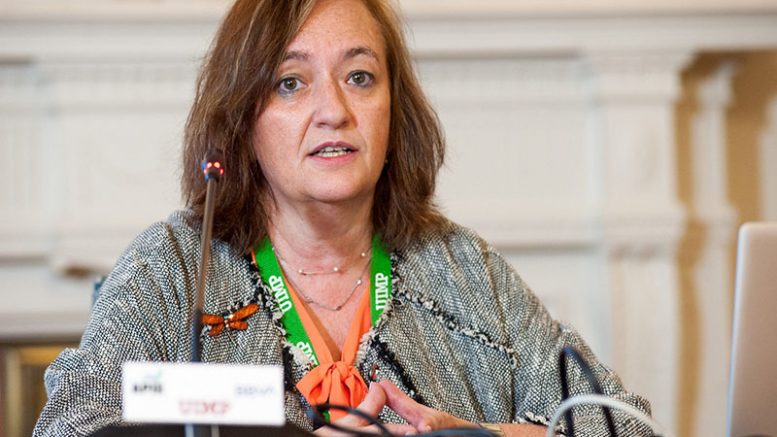Cristina Herrero, President of the Independent Authority for Fiscal Responsibility (AIReF), yesterday criticized the Government for filling the ‘pensions piggy bank’—known as the Reserve Fund—based on taxes and debt, that is, with transfers and loans from the State. The latest loan, for €10 billion, was made this very month of November to cover the extraordinary annual payment.
Total pension spending stands at €15.6 billion per month (around 218 billion annually), while contributions only cover about 70% of that bill. This has led the State to finance an increasingly significant portion of pension expenditure, amounting to just over €60 billion. This figure is equivalent to the public deficit that the State must finance each year through the issuance of public debt.
In the pension reform carried out by this Government, measures were taken that affect spending—upwardly—such as the revaluation of pensions based on the CPI and the repeal of the sustainability factor, along with other measures affecting income. The measure contributing the most is the so-called Intergenerational Equity Mechanism (MEI), an extra contribution paid by all workers since 2023 without generating additional rights. These ‘extra’ revenues are intended to fill the pension reserve fund (hucha de las pensiones), which the Government projects will close the year with €14 billion. “While Social Security has a deficit, I do not understand why the Reserve Fund is being enlarged,” commented [AIReF President] Herrero in his appearance before the Congress, in the Toledo Pact Commission. In his opinion, without a surplus in the pension system, that reserve fund “means nothing” in terms of sustainability, despite the Government’s efforts to disseminate that idea.
Furthermore, Herrero complained about the Government’s “drift,” citing constant interference in its evaluation tasks by dictating when and how it should conduct its analyses, with laws and royal decrees that “disrupt the functioning and independence” of the institution, particularly in the area of pensions. This led AIReF (Spain’s Independent Authority for Fiscal Responsibility) to request the support of the State Attorney’s Office in defending its independence.
In fact, the Government went so far as to specify the methodology that AIReF should follow in its pension review within a royal decree: it must consider State transfers to Social Security as income, update GDP data, and take into account the impact of labor reforms. The royal decree also stipulated that AIReF must produce a second report in 2026 using these guidelines.
Behind this review are the Government’s commitments to the European Commission, as European funds were received in exchange for the pension reform and the guarantee that the system’s sustainability would improve. This improvement, however, is only visible to the Government. Following the first evaluation, AIReF itself questioned the calculation methodology for that sustainability and, therefore, its alleged improvement.





